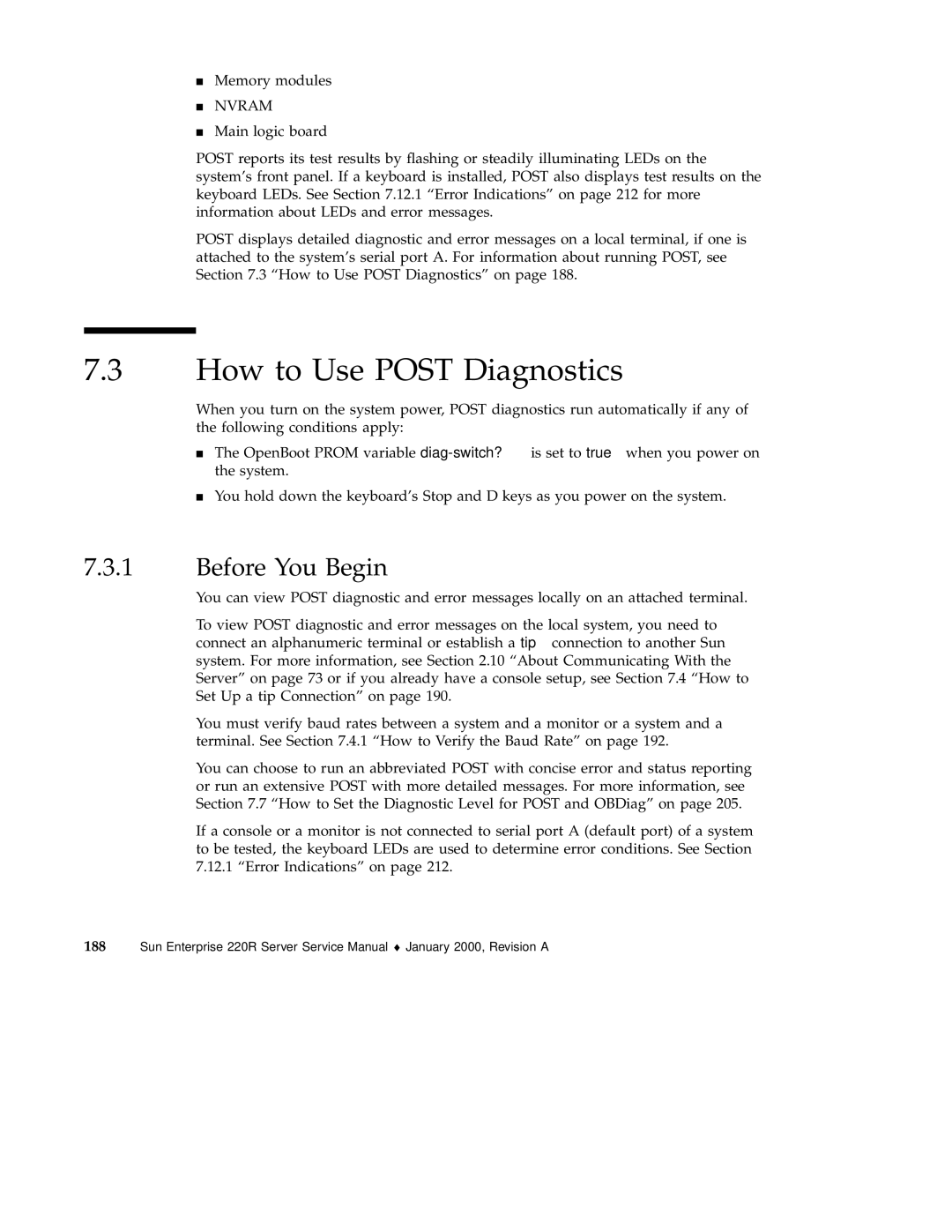Memory modules
4NVRAM
Main logic board
POST reports its test results by flashing or steadily illuminating LEDs on the system's front panel. If a keyboard is installed, POST also displays test results on the keyboard LEDs. See Section 7.12.1 “Error Indications” on page 212 for more information about LEDs and error messages.
POST displays detailed diagnostic and error messages on a local terminal, if one is attached to the system's serial port A. For information about running POST, see Section 7.3 “How to Use POST Diagnostics” on page 188.
7.3How to Use POST Diagnostics
When you turn on the system power, POST diagnostics run automatically if any of the following conditions apply:
The OpenBoot PROM variable
4the system.
You hold down the keyboard's Stop and D keys as you power on the system.
7.3.1Before You Begin
You can view POST diagnostic and error messages locally on an attached terminal.
To view POST diagnostic and error messages on the local system, you need to connect an alphanumeric terminal or establish a tip connection to another Sun system. For more information, see Section 2.10 “About Communicating With the Server” on page 73 or if you already have a console setup, see Section 7.4 “How to Set Up a tip Connection” on page 190.
You must verify baud rates between a system and a monitor or a system and a terminal. See Section 7.4.1 “How to Verify the Baud Rate” on page 192.
You can choose to run an abbreviated POST with concise error and status reporting or run an extensive POST with more detailed messages. For more information, see Section 7.7 “How to Set the Diagnostic Level for POST and OBDiag” on page 205.
If a console or a monitor is not connected to serial port A (default port) of a system to be tested, the keyboard LEDs are used to determine error conditions. See Section 7.12.1 “Error Indications” on page 212.
188 Sun Enterprise 220R Server Service Manual ♦ January 2000, Revision A
